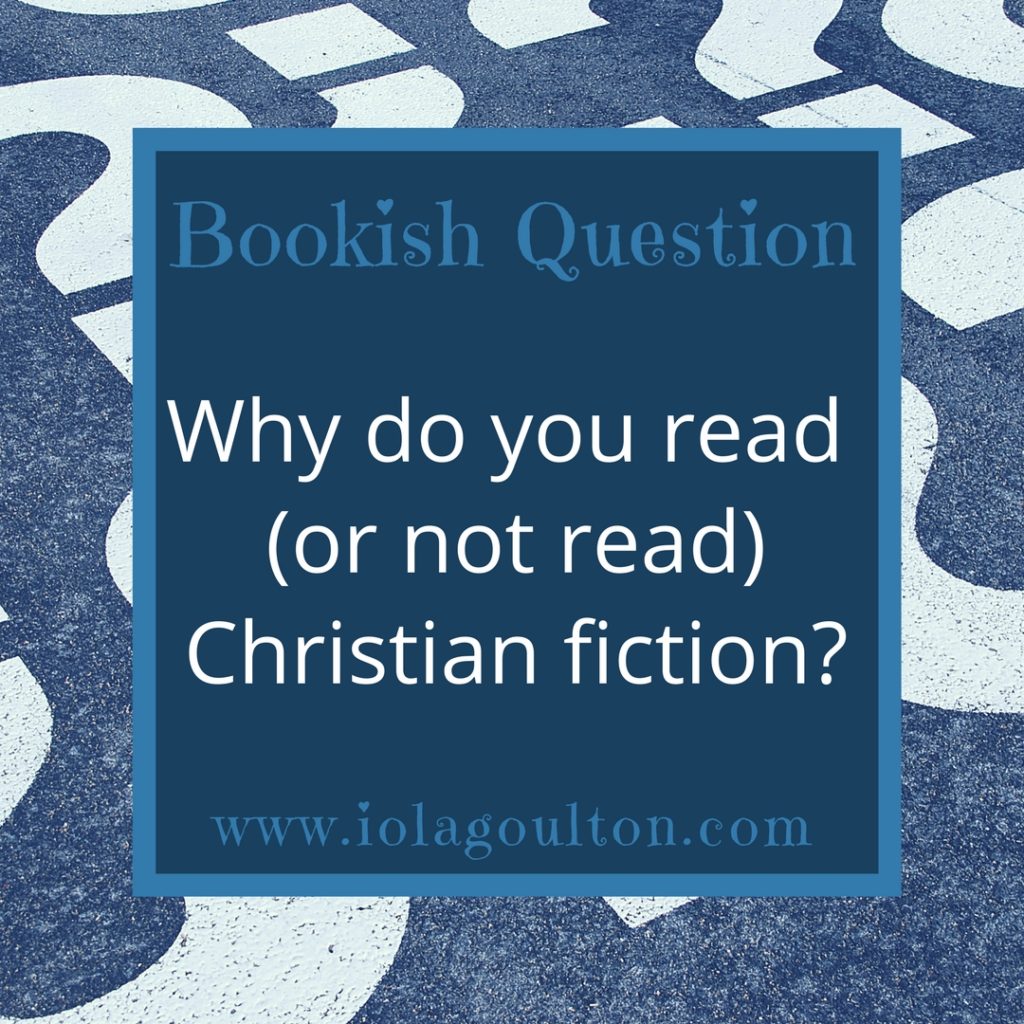Last week, I asked if you read Christian fiction. This post broke one of the so-called major rules of blogging: it asked a yes/no question. Apparently, blog posts are supposed to ask open-ended questions.
I’m now wondering about that rule, because when I shared the question and the post link on Facebook, Instagram, and Twitter, I got more responses than usual. That’s probably because it was an easy question … yes, or no (although some people said both, and some expanded on their answers).
So what did people say?
Most of my Facebook followers are Christians, and I know most are interested in and read Christian fiction.
One of my Facebook pages is called Iola’s Christian Reads, so that’s pretty much asking for followers to be Christian fiction readers. My other Facebook page is my author page, and my tagline is ‘Contemporary Christian Romance with a Kiwi twist’. That’s not something that’s going to appeal to general market fantasy readers.
Instagram is similar.
Most of my followers are people I follow, and most of the people I follow are Christian fiction writers, reviewers, or readers. So it’s no surprise that my Facebook and Instagram followers report that they do read Christian fiction.
Twitter was a little different.
My Twitter followers tend to be writers, and (while I haven’t asked) I expect that’s a mix of Christians and non-Christians. Generally, the people who answered my question on Twitter didn’t read Christian fiction, even though many of them said they were Christians.
The next obvious question is, why?
Why do you read Christian fiction?
While I mostly read and review Christian fiction, I also read some general market fiction. These tend to be bestsellers or novels that have been recommended to me as excellent.
But, given the choice, I’d rather read Christian fiction. Why? Several reasons …
General market fiction often has too much swearing, violence, or sex for my taste. Or all three. I read for entertainment, and I don’t find it entertaining to read about a character being raped or beaten up. It can linger in my brain for months or years (oddly enough, I’m a lot less sensitive when it comes to TV or movies—perhaps because they move on so fast that I’m not left to linger on the violence).
I like reading fiction that reflects my faith. I’m sure many non-Christians don’t read Christian fiction for the same reason—they also want to read fiction which reflects their values and beliefs.
I don’t like reading fiction where the characters spend their time angsting (that’s a word, right?) about #FirstWorldProblems that would be solved if they met Jesus.
I like reading fiction where something about God or about how we relate to God is woven into the story (I don’t like preachy fiction, where the author hits me over the head with his or her answers).
If you’re a Christian and you don’t read Christian fiction, why not?
This isn’t meant to be a challenge. It’s an honest enquiry. There are no wrong answers.
Is there an actual reason why you don’t read Christian fiction? Is it that you’re like my husband, who reads an average of one novel a year? Perhaps because you’re a diehard science fiction fan and there doesn’t seem to be any Christian sci-fi? Is it that you read some bestselling Christian novels years ago and didn’t enjoy them?
Or is it just that you don’t know it exists?



I want to read a lot of Christian Fiction for a lot of the reasons you outlined – but I don’t particularly enjoy Romance – and almost all Christian fiction I have been in contact with is either Romance (many being Amish or Colonial American settings which become repetitive after a while) or epic fantasy – neither of which are my genre of choice. In order to get around this, I tend to read “classics” – because (incidentally or otherwise) a lot of them are written by Christians, or at the very least, people who accept a Christian worldview. In terms of contemporary Christian fiction, the only ones I’ve read and can say I really love are The Hawk and the Dove series by Penelope Wilcock, and C. S. Lewis’ That Hideous Strength trilogy.
I’m not a fan of Amish (as you say, it can be repetitive), and Colonial American isn’t my favourite time setting … probably because I’m British by birth!
I think there is a lot of great Christian fiction around, although you are right – a lot of it is romance. Keep an eye on my reviews, as I do come across some Christian fiction which doesn’t have a lot of romance. Grace in Strange Disguise by Christine Dillon is one, and Lu by Beth Troy is another. However, they are both independently published. I think romance sells well, which is why the major publishers keep pumping it out.
Another thought: Where We Belong by Lynn Austin has some romance, but that’s not the focus. It’s a good one to try if you like history. I’ll be reviewing it next week.
I read mainly Christian fiction for pretty much the same reasons you stated. I will not read stuff that go against my personal beliefs.
I read Christian fiction because it’s not full of foul language and gratuitous sex; however, I do still read other fiction. I do find many Christian fiction books to be too perfect – characters never think, act, or speak inappropriately and that’s just not realistic.
I understand what you mean – it can be hard to find books with realistic characters. They are around, but they aren’t always the easiest to find. Thanks for visiting!